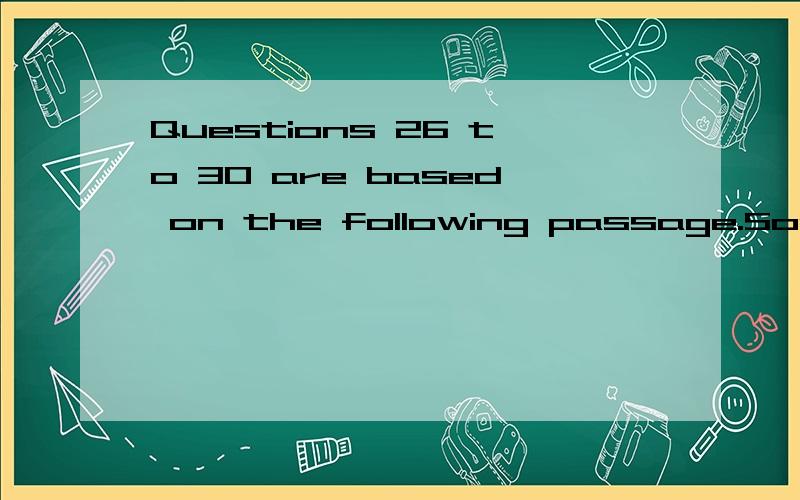Questions 26 to 30 are based on the following passage.Some futurologists have assumed that the vast upsurge(剧增)of women in the workforce may portend a rejection of marriage.Many women,according to this hypothesis,would rather work than marry.The
来源:学生作业帮助网 编辑:作业帮 时间:2024/11/25 00:46:38

Questions 26 to 30 are based on the following passage.Some futurologists have assumed that the vast upsurge(剧增)of women in the workforce may portend a rejection of marriage.Many women,according to this hypothesis,would rather work than marry.The
Questions 26 to 30 are based on the following passage.
Some futurologists have assumed that the vast upsurge(剧增)of women in the workforce may portend a rejection of marriage.Many women,according to this hypothesis,would rather work than marry.The converse(反面)of this concern is that the prospects of becoming a multi-paycheck household could encourage marriage.In the past,only the earnings and financial prospects of the man counted in the marriage decision.Now,however,the earning ability of a woman can make her more attractive as a marriage partner.Data show that economic downturns tend to postpone marriage because the parties cannot afford to establish a family or are concerned about rainy days ahead.As the economy rebounds,the number of marriages also rises.
Coincident with the increase in women working outside the home is the increase in divorce rates.Yet,it may be wrong to jump to any simple cause-and-effect conclusions.The impact of a wife"s work on divorce is no less cloudy than its impact on marriage decisions..
Questions 26 to 30 are based on the following passage.Some futurologists have assumed that the vast upsurge(剧增)of women in the workforce may portend a rejection of marriage.Many women,according to this hypothesis,would rather work than marry.The
问题呢?